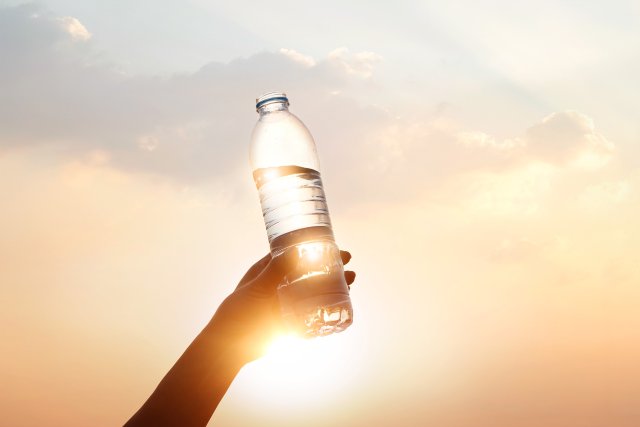The Billion Bottle Project

Access to safe drinking water is a global public health challenge. Two billion people live in water-stressed countries and regularly use contaminated drinking water sources, leading to waterborne diseases from microbial contamination. A student team from Case Western Reserve School of Medicine set out to develop a solution to help address this issue. They applied for and received a grant from EPA’s People Prosperity and the Planet program (P3) program, which awards university and college students grants to design innovative solutions for a sustainable future. The student team embarked on a project to use sunlight and a visual confirmation system to provide people reliable, inexpensive, and sustainable drinking water. In the process, they developed innovative sensors and launched a non-profit, as they worked towards an ambitious goal of disinfecting the equivalent of one billion bottles of water.
The team developed a reusable water treatment sensor called OSPRI (Optimized Solar Purification with a Reusable Indicator) that changes color to notify the user that the water is safe to drink. Unlike traditional solar disinfection – which assumes that sufficient disinfection has taken place under certain conditions – OSPRI provides real-time, visual confirmation that water is safe to drink. OSPRI uses a submersible sensor that incorporates an ultraviolet (UV)-sensitive dye-based indicator that changes color reversibly. The sensor is equipped with a color changing dye that changes from blue to white (corresponding with the dose of UV light) when the water is safe to drink. The team worked to make sure the OSPRI indicator was as accurate as possible by altering the composition of the chemicals in the sensor to respond to specific UV exposures needed to inactivate bacteria. Finally, the team prioritized a sustainable approach – because the sensor changes color reversibly, it can be reused daily for at least 30 days. OSPRI’s innovative visual confirmation system gives the user confidence that their drinking water has received sufficient sunlight to be disinfected. Traditional solar disinfection (SODIS) presumes that sufficient disinfection has taken place when the water sample has been exposed to direct sunlight for at least 6 hours on a sunny day or 2 days under cloudy conditions. SODIS’ effectiveness is diminished because it is highly dependent on weather conditions, water sample clarity and several other factors.
The project showed such great promise that the team received a second P3 award to fine-tune the device to yield a fully functional sensor device. The team designed a 3D-printable model of the OSPRI design which allows for simpler manufacturing and increased availability. The team further developed an additional device called SANTE which uses the same technology as OSPRI but is a more cost-effective, sticker-based sensor that can be placed on the outside of a water container for a simpler, cheaper sanitation platform. Similar to OSPRI, SANTE is reusable and uses UV-sensitive dye to provide a color endpoint to notify the user that the water is drinkable. The devices can then be placed in a dark space and will revert to their blue color.
The P3 team established a nonprofit organization, the Billion Bottle Project, with the goal of disinfecting a quantity of drinking water equal to one billion bottles of water. Under the Billion Bottle Project, team members developed their innovative SODIS design, which provided the treatment mechanisms to meet their disinfection goal and demonstrated the reliability of solar water disinfection. They also provided hands-on educational and leadership opportunities to students in the process.
Since receiving the P3 funding, four team members won Bronze in the Graduate Division of the 2018 Collegiate Inventors Competition with a presentation of the OSPRI prototype titled “Color Your Water Clean.” Also in 2018, an undergraduate team member won the Incredible Youth Student Engineering Contest sponsored by OMEGA Engineering for her work on the project. In January 2022, the Billion Bottle Project received a patent for the OSPRI technology.
The Case Western Reserve University team used their P3 awards to create an innovative and sustainable device that embodies the P3 philosophy by developing technology that will provide safe drinking water to people, especially those in rural or developing areas; is cost-effective and easy to use; and is sustainable through the reusable sensor. As they strived toward a goal of disinfecting one billion water bottles, the team’s influential idea was transformed into a real-world product offering a reliable, cost-effective, and user-friendly alternative for water sanitation for households across the world.
Learn More:
